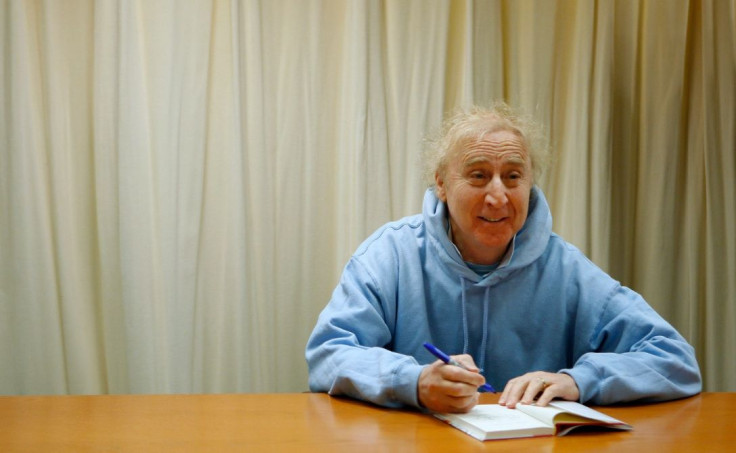Why Gene Wilder Kept Alzheimer’s Secret And How His Death Can Help Awareness Of The Disease

Legendary actor Gene Wilder died from Alzheimer’s at the age of 83 Sunday, but his fans didn’t know he was suffering from the illness. Wilder purposely kept the disease private because he didn’t want to upset fans who loved his role as Willy Wonka in the beloved ‘70s film "Willy Wonka & the Chocolate Factory." But now that his secret is out, Wilder’s death from Alzheimer’s could bring more awareness to the disease.
Wilder was diagnosed with the degenerative brain disorder three years ago. It’s the sixth-leading cause of death in the U.S. His family was quick to give Alzheimer’s as the cause of death for Wilder, but it’s not always that way.
“There’s such a tendency to not name [Alzheimer’s disease] for what it is, and it’s commendable that they’ve identified it as a cause of death,” Alzheimer’s disease expert Kristoffer Rhoads, a clinical neuropsychologist at the University of Washington School of Medicine’s Memory and Brain Wellness Center at Harborview, told the Huffington Post in an exclusive interview Tuesday.
Rhoads argued there isn’t a celebrity spokesperson for Alzheimer’s like there is with other diseases. Having a public figure can help raise awareness about early diagnosis and treatments that help with brain function.
“Right now, there is not as visible of a spokesperson for Alzheimer’s disease,” he said. “Think about Parkinson’s and Michael J. Fox.”
One of the reasons there isn’t a celebrity spokesperson could be because of the stigma that surrounds the diagnosis. People are often embarrassed or afraid of the condition, the Huffington Post noted. Also, some don’t think there is anything that can be done to treat Alzheimer’s, so they don’t think a diagnosis is necessary. However, there are medications, diet changes and exercises that can help curb Alzheimer’s when it’s in its early stages.
Wilder’s family said pride was not the reason he didn’t disclose his diagnosis. “The decision to wait until this time to disclose his condition wasn’t vanity, but more so that the countless young children that would smile or call out to him ‘there’s Willy Wonka,’ would not have to be then exposed to an adult referencing illness or trouble and causing delight to travel to worry, disappointment or confusion. He simply couldn’t bear the idea of one less smile in the world,” part of their statement read.
Follow me on Twitter @mariamzzarella
© Copyright IBTimes 2024. All rights reserved.












